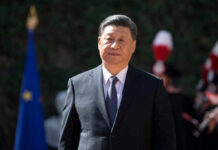
The recent conflict between Israel and Hamas has the potential to cause significant disruptions in the global oil market. The World Bank has warned that should the conflict escalate, oil prices could reach unprecedented levels, with far-reaching implications for the world economy.
A significant disruption resulting from an escalation in the war between Israel and Hamas could cause the global oil supply to fall by around 6-8%. This would push oil prices up by 56-75% from the fourth quarter of 2023 baseline. Even a medium disruption of around 3-5% would increase oil prices by 21-35%.
‘Dual Energy Shock’: World Bank Warns of Skyrocketing Oil Prices Amid Israel-Hamas Conflict | Just The News https://t.co/GeHLEkYgA8
— John Solomon (@jsolomonReports) October 31, 2023
The invasion of Ukraine had already placed constraints on the supply of oil. A potentially destabilized Middle East would apply even more pressure to the market. “The latest conflict in the Middle East has raised geopolitical risks for commodity markets,” warns the World Bank’s Commodity Markets Outlook report. “Previous military conflicts in the region often resulted in higher prices and volatility in commodity markets.”
Since the beginning of the conflict in early October, energy prices have increased by 9%. Oil prices have risen 6% during the same period, fueled by uncertainty about the future of the Middle East. Global oil demand has reached a new high of 103 million barrels per day in the third quarter of 2023. Factors contributing to this growth include easing stress in the banking industry, better-than-expected air and transport activity, and consumption growth in China.
Despite production cuts by the Organization of Petroleum Exporting Countries, increased production from other countries, including the Americas, has offset these cuts. The U.S. remains the world’s largest oil producer.
The escalating conflict could also increase global and domestic inflation as the price of fuel rises, adding expenses to all industries that use the commodity. An expanded conflict could even trigger a U.S. and global recession following the shock from heightened oil prices.
“The latest conflict in the Middle East comes on the heels of the biggest shock to commodity markets since the 1970s — Russia’s war with Ukraine,” says Indermit Gill, the World Bank’s chief economist. “That had disruptive effects on the global economy that persist today. Policymakers will need to be vigilant. If the conflict were to escalate, the global economy would face a dual energy shock for the first time in decades — not just from the war in Ukraine but also from the Middle East.”
The conflict threatens to spread beyond Israel and the occupied Palestinian territories. Energy analysts warn that global exports could be hit if leading crude producers such as Iran become actively involved.
































